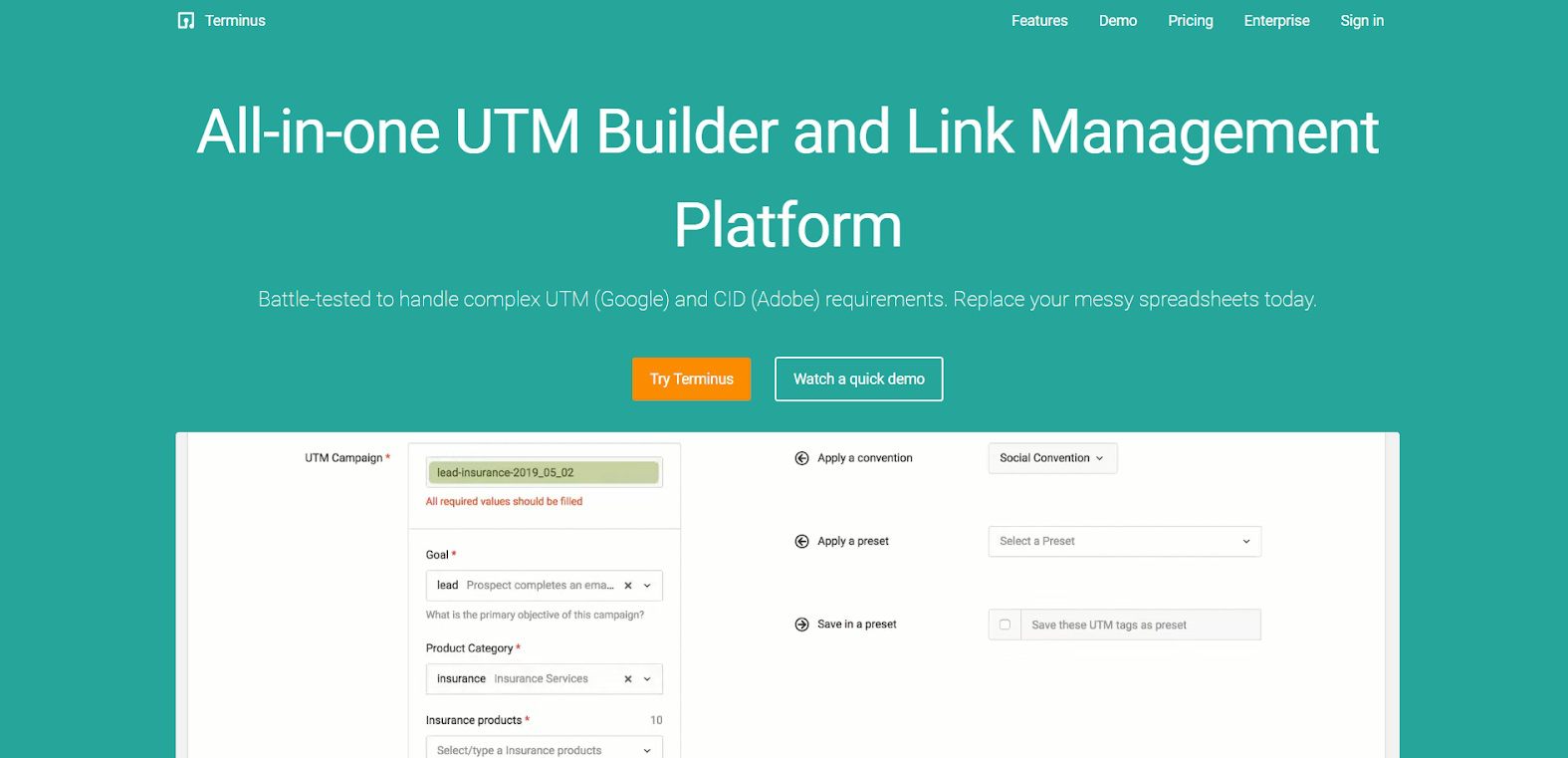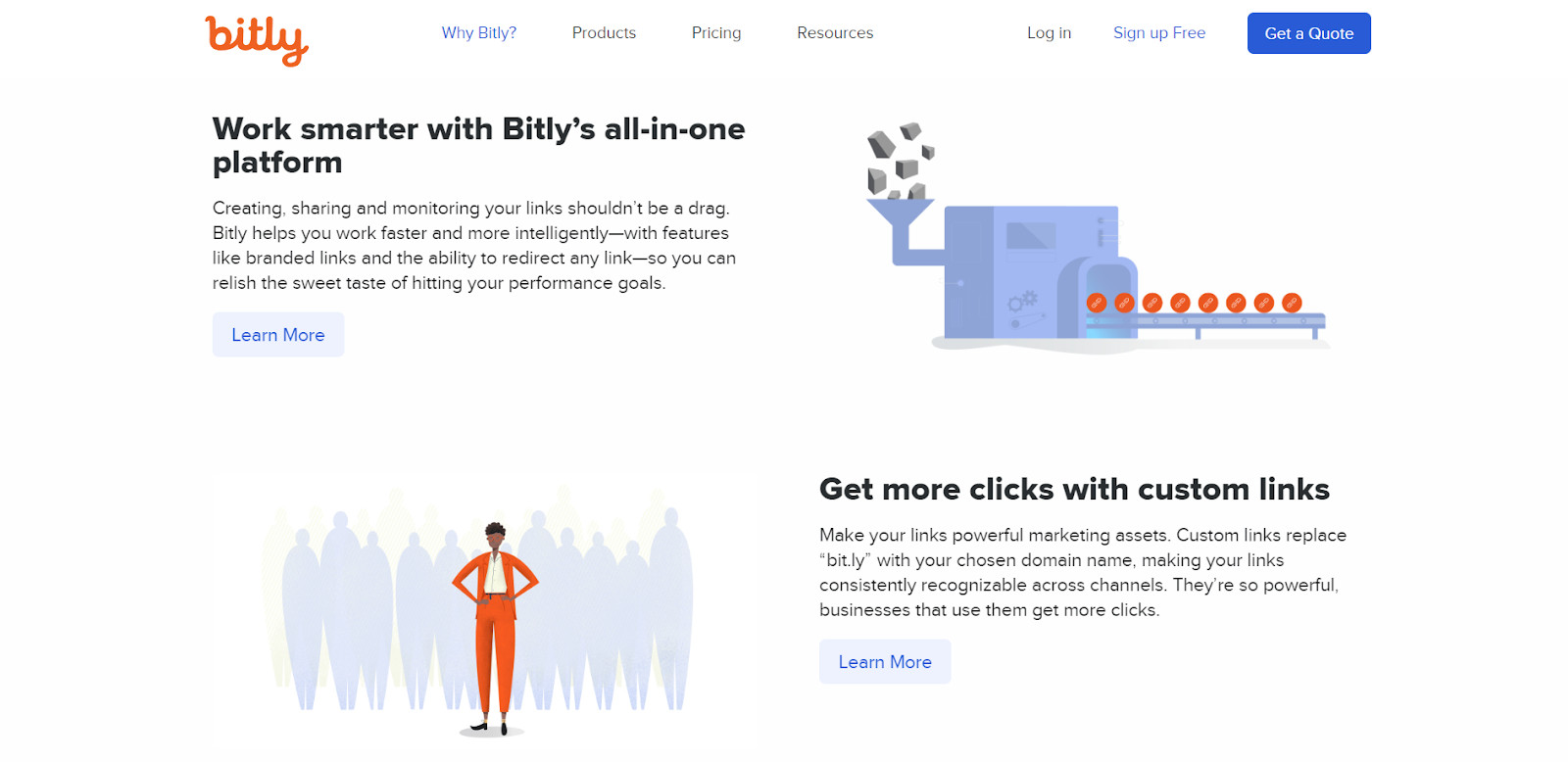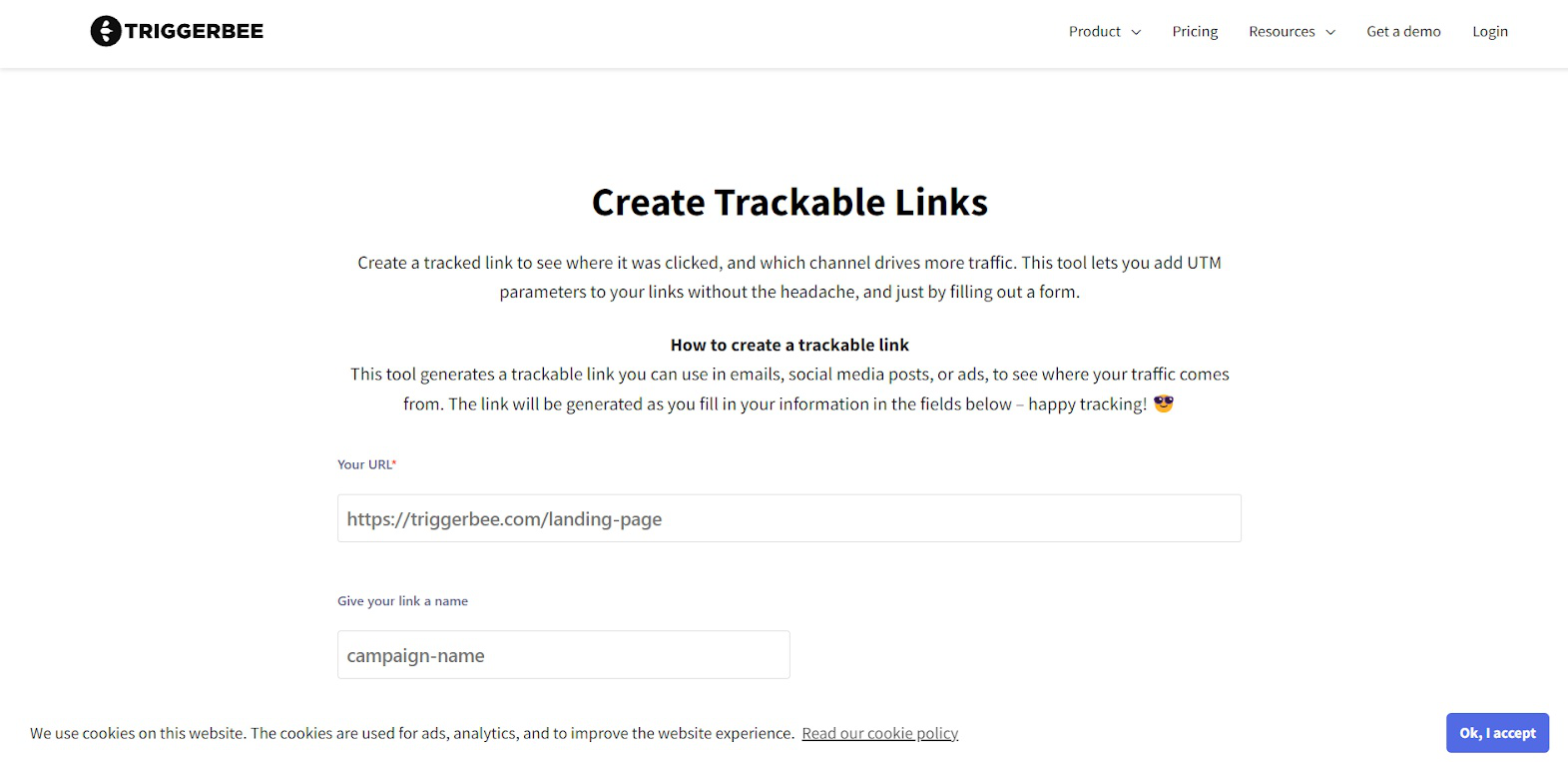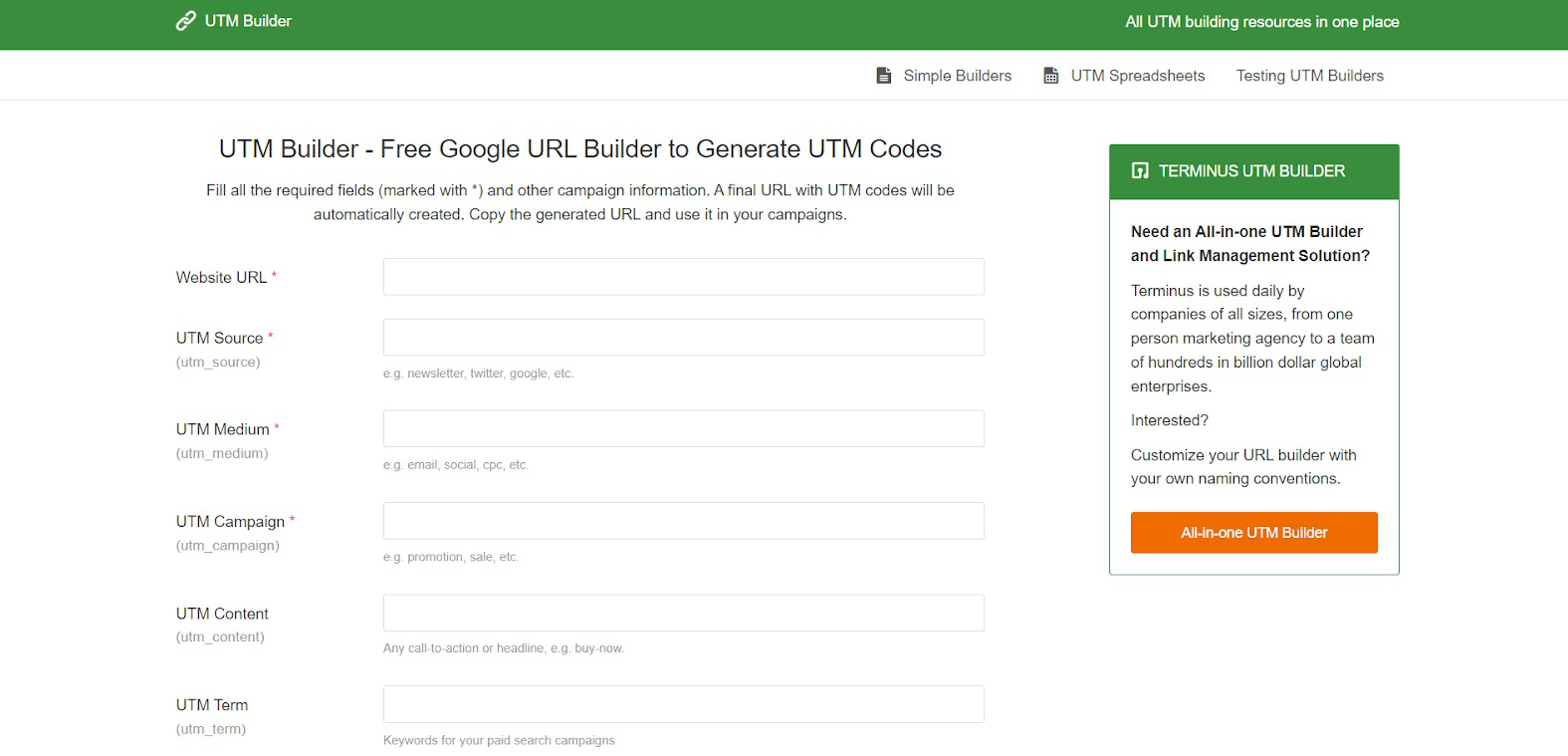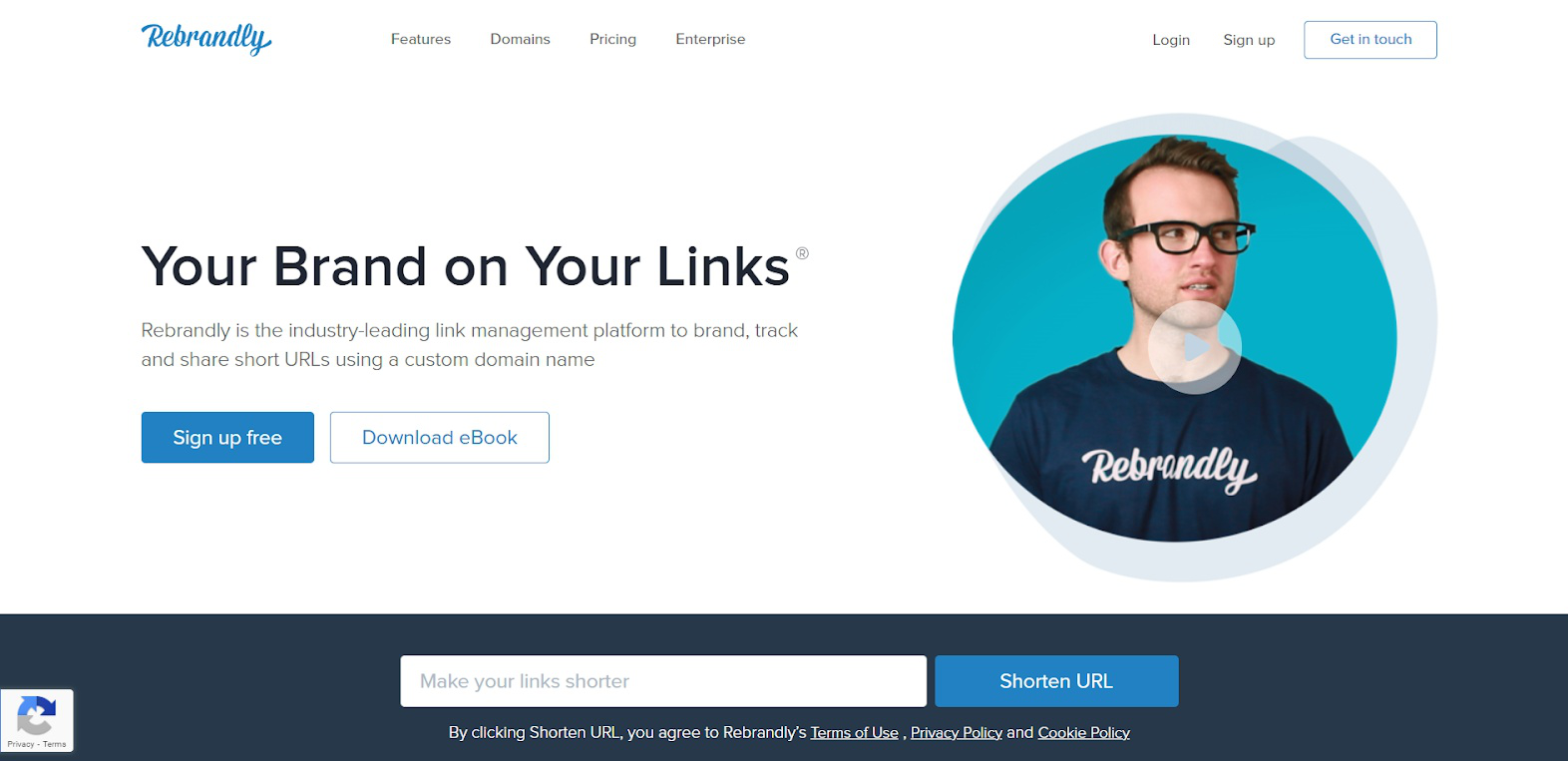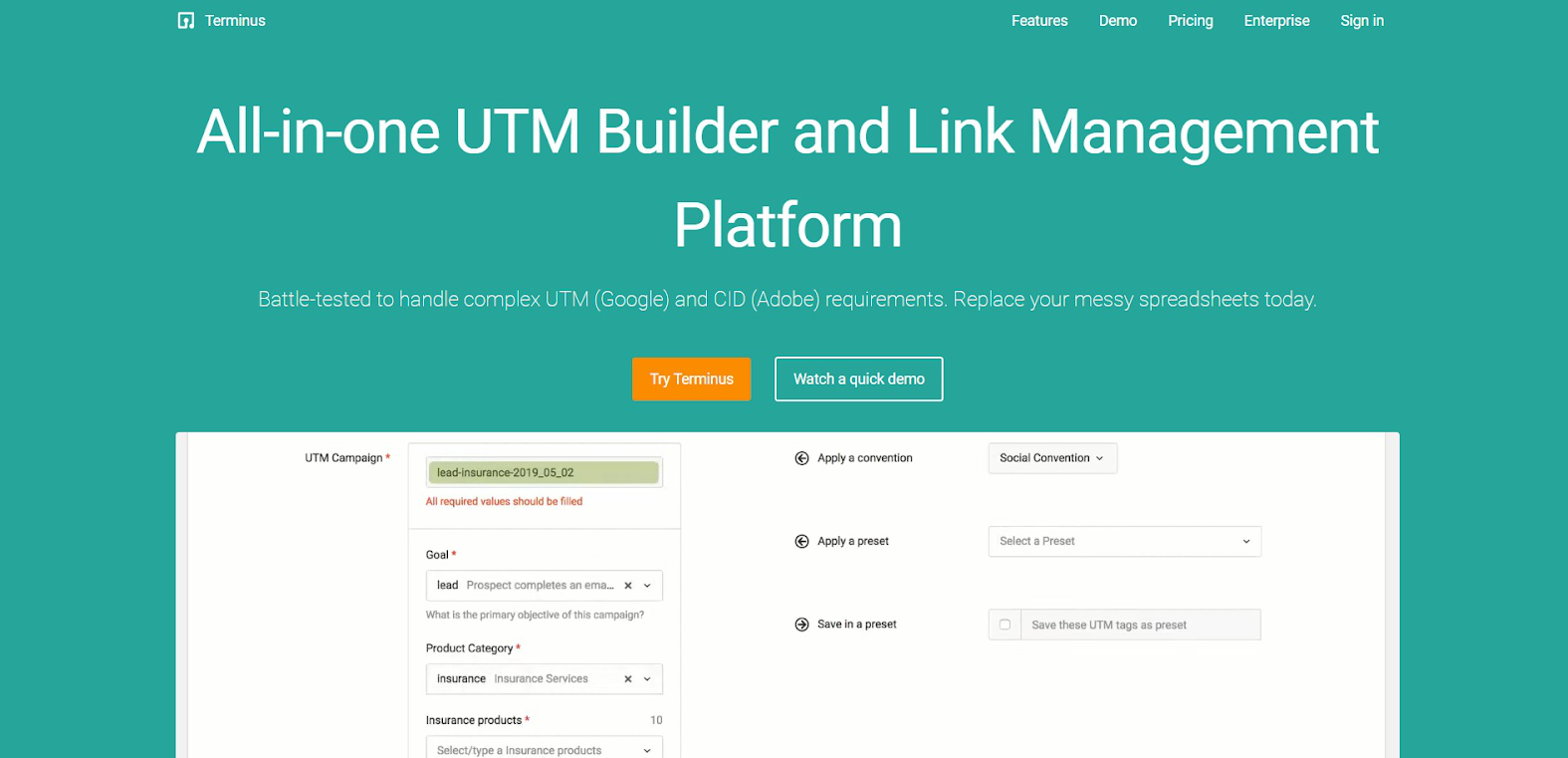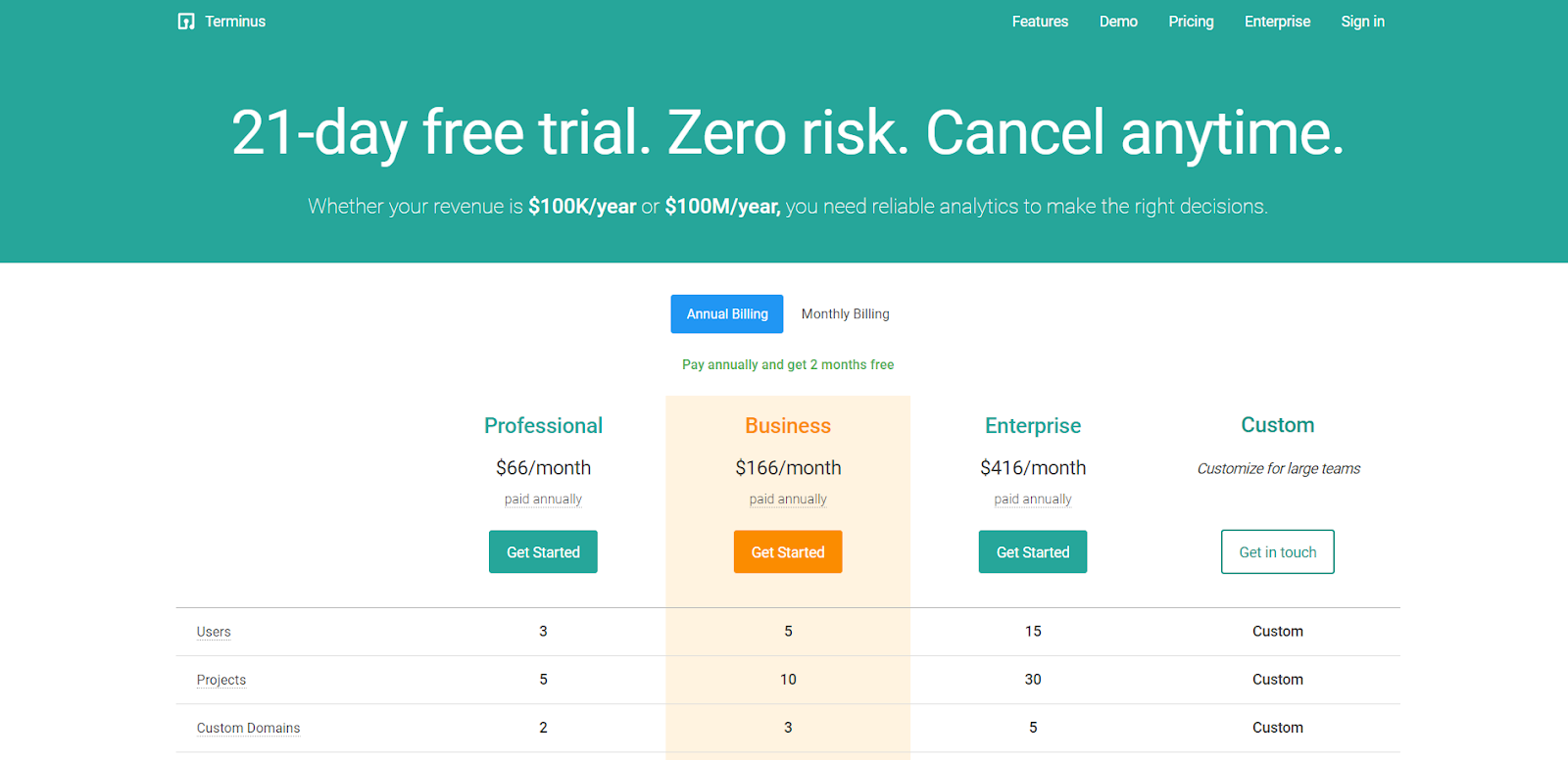In today’s digital landscape, understanding website traffic sources and attributing them to specific marketing efforts is crucial for businesses to optimize their marketing strategies.
Traffic attribution lets you determine which marketing channels and campaigns drive the most engagement and conversions. One powerful tool for achieving accurate traffic attribution is using UTM parameters.
In this article, we will delve into what UTM parameters are, how to use UTM parameters for traffic attribution, and best practices for utilizing them effectively.
What are UTM Parameters?
UTM parameters are tags that can be added to a URL. When a user clicks on a link with UTM parameters, Google Analytics captures and records that information, allowing for analysis of the activity and behavior of visitors who interacted with that specific link.
A UTM parameter tag can be personalized and appended to a destination URL. Its purpose is to enable Google Analytics to monitor website visits from campaigns and various communication channels.
It functions when a destination link containing a UTM parameter is clicked. That parameter is transmitted to Google Analytics and recorded as a traffic source.
This feature proves valuable in gauging the success of your email marketing endeavors. By using UTM parameters, you can determine the most effective calls to action within your emails and measure conversions resulting from your email marketing campaigns.
Benefits of UTM Parameters for Traffic Attribution
Accurate Tracking of Traffic Sources
UTM parameters offer a level of precision in tracking that allows you to delve deep into your website traffic sources.
By analyzing the data provided by UTM parameters, you gain valuable insights into which sources drive the most visitors to your site.
Identification of the Most Effective Marketing Channels
Using UTM parameters for traffic attribution helps you compare and evaluate the performance of different marketing channels. By assessing the quality and quantity of traffic each channel generates, you can pinpoint the channels that deliver the best results for your business.
This knowledge helps you make informed decisions when allocating your marketing resources, ensuring that you invest your time, effort, and budget in the channels that yield the highest return on investment.
Measurement of Campaign Performance
UTM parameters are powerful tools for measuring the effectiveness of your marketing campaigns.
By associating specific parameters with each campaign, you can easily track and evaluate their impact on critical metrics such as website traffic, conversions, and engagement.
You can identify the campaigns driving the desired outcomes, enabling you to optimize your future campaigns and drive even greater results.
Enhanced Understanding of User Behavior and Preferences
One of the key advantages of UTM parameters is their ability to provide deep insights into user behavior and preferences.
By tracking users’ paths to reach your website, UTM parameters reveal crucial information about the pages they visit, their actions, and their conversion patterns.
This wealth of data helps you comprehensively understand your audience, enabling you to optimize the user experience and tailor your marketing messages to resonate with their specific needs and preferences.
Best Practices for Using UTM Parameters
Consistent Naming Conventions for UTM Parameters
When implementing UTM parameters for traffic attribution, it is essential to establish a standardized naming convention. This practice ensures consistency across your UTM tags, making analyzing and comparing data from various sources and campaigns easier.
Using a consistent format for naming your UTM parameters can avoid confusion and maintain clarity in your tracking efforts.
Consistency in naming conventions also helps when collaborating with team members or external stakeholders. Everyone involved can easily understand and interpret the UTM parameters, fostering effective communication and streamlined analysis.
Properly Tracking Campaigns Across Multiple Platforms
To ensure accurate attribution of website traffic, it is crucial to implement UTM parameters consistently across all your marketing platforms.
Whether you are running email marketing campaigns, leveraging social media channels, or investing in paid advertising, tracking campaigns uniformly is essential for meaningful analysis.
Each platform should have a standardized approach to incorporating UTM parameters into your URLs. This consistency allows you to compare data across different channels and gain insights into the effectiveness of each platform in driving traffic and conversions.
Avoiding Common Mistakes and Pitfalls
When using UTM parameters for traffic attribution, it is essential to be cautious and avoid common mistakes that can compromise the accuracy of your data. Pay attention to the following potential pitfalls:
Typos: Double-check your UTM parameters for any typos or misspellings. Even a minor error can lead to skewed data or prevent accurate tracking.
Inconsistent capitalization: Maintain consistency in capitalization within your UTM parameters. Mixing uppercase and lowercase letters can create duplicate entries and make data analysis more challenging.
Excessive Use of Special Characters: While special characters can be used in UTM parameters, keeping them to a minimum is best. Excessive use of special characters may cause issues with URL encoding and lead to tracking errors.
Avoiding these common mistakes will ensure the reliability and accuracy of your UTM data, enabling effective attribution and analysis of your website traffic.
Regularly Reviewing And Analyzing UTM Data
Once you have implemented UTM parameters and collected data, reviewing and analyzing the information is crucial to derive meaningful insights regularly. Make it a habit to examine the data collected from UTM parameters on a consistent basis.
By regularly reviewing the data, you can recognize patterns and areas for improvement in your marketing efforts. Analyze the performance of different campaigns, sources, and mediums to determine which strategies are driving the most traffic and conversions.
5 Tools for UTM Parameter Management
1.TerminusApp
When it comes to building UTM links, TerminusApp stands out as one of the top tools in the market. It streamlines the process of creating marketing URLs and automates UTM tagging, making it a time-saving solution.
TerminusApp adheres to UTM naming conventions, ensuring consistency by enforcing lowercase and removing spaces from the parameters. Users can also save templates for future campaigns and include multiple UTM parameters in a single URL.
Pros:
- TerminusApp simplifies the process of creating UTM links, saving time and effort for marketers.
- The tool automates UTM tagging, ensuring accurate and consistent application of parameters.
- TerminusApp enforces UTM naming conventions, promoting consistency and best practices.
- Users can save templates for future campaigns, enhancing efficiency and maintaining branding consistency.
- TerminusApp allows the inclusion of multiple UTM parameters in a single URL, providing flexibility for tracking various campaign elements.
Cons:
- Users may need time to familiarize themselves with TerminusApp’s features and interface.
2.Bitly
Bitly is a widely recognized tool for creating shortened links using the “bit.ly” domain name. Its primary function is to condense long URLs into more concise and memorable forms, facilitating easier sharing.
In addition to its link-shortening capabilities, Bitly offers several advantages. Users can tag and analyze links in bulk, create QR codes for easy scanning, and access enterprise-level features.
Pros:
- Bitly excels in its core function of shortening long URLs, making them more manageable and shareable.
- Users can tag and analyze links in bulk, providing valuable insights and data for marketing campaigns.
- Bitly allows the creation of QR codes, enabling easy scanning and access to linked content.
- Bitly offers advanced features suitable for enterprise-level use, catering to the needs of larger organizations.
- Bitly provides a range of pricing options, accommodating different budgets and requirements.
Cons:
- The ability to create branded short links, which enhances branding and recognition, is only available in the paid subscription plans.
- Bitly imposes limits on link data and history storage, potentially restricting long-term analytics and tracking.
- Bitly’s customer support offerings are minimal, which may be a drawback for users requiring extensive assistance or troubleshooting.
- Using Bitly means relying on the “bit.ly” domain for all shortened links, which might not align with certain branding strategies.
- Bitly primarily focuses on link shortening and analytics, lacking some advanced features found in comprehensive marketing or analytics platforms.
3.Triggerbee
The Triggerbee Link Creator is a tool that allows you to build custom links with simple descriptions of the UTM parameters, such as giving your link a name and specifying where you will be sharing it.
It also includes an email parameter useful for email campaigns, as you can add the recipient’s email to the campaign URLs.
Pros:
- The Triggerbee Link Creator enables users to build custom links with simplified descriptions of UTM parameters, making it user-friendly.
- The tool includes an email parameter, allowing the addition of recipient’s email to campaign URLs, enhancing personalization.
- Triggerbee Link Creator offers a straightforward and intuitive interface, making it easy for users to navigate and utilize the tool.
- With the simplified process and descriptions, users can create custom links quickly and efficiently.
- The tool allows users to specify where the link will be shared, providing clarity and control over the distribution channels.
Cons:
- Users may find it inconvenient to manually copy and paste parameter values and the final URL, potentially leading to errors.
- The tool does not include some essential UTM parameters like medium, content, and term, limiting the granularity of tracking and analysis.
- Without standardized UTM parameters, there may be inconsistencies in naming conventions and data organization.
- The Triggerbee Link Creator may lack advanced features found in more comprehensive UTM tools, such as automated tagging or analytics integration.
- Relying solely on user-provided descriptions for UTM parameters may introduce inconsistencies or subjective interpretations, affecting data accuracy.
4.Utmbuilder.net
For marketers seeking a simple and user-friendly tool for UTM parameter generation, UTMBuilder.net is an excellent choice. This platform enables users to input the necessary UTM parameters effortlessly and generates a unique URL that can be used to track campaign performance.
UTMBuilder.net offers five standard UTM parameters: Campaign Source, Campaign Medium, Campaign Name, Campaign Term, and Campaign Content.
Pros:
- UTMBuilder.net is designed to be intuitive and user-friendly, making it easy for marketers to generate UTM parameters without technical expertise.
- The platform enables users to input UTM parameters effortlessly, simplifying the process of generating UTM codes.
- UTMBuilder.net offers the five standard UTM parameters (Campaign Source, Campaign Medium, Campaign Name, Campaign Term, and Campaign Content), covering the fundamental elements of UTM tracking.
- Users have the flexibility to define custom parameters to align with their specific marketing goals, allowing for greater customization.
- By automating the UTM parameter generation process, UTMBuilder.net saves time and reduces the risk of manual data entry errors, enhancing efficiency and accuracy.
Cons:
- UTMBuilder.net may lack advanced features found in more comprehensive UTM tools, such as automated tagging, analytics integration, or advanced tracking capabilities.
- The tool might not provide direct integration with analytics platforms, requiring manual data transfer for analysis.
- Without standardized UTM parameters or naming conventions, there may be inconsistencies in data organization and analysis.
- The accuracy and effectiveness of the generated UTM codes rely on the quality and completeness of the user’s input.
- UTMBuilder.net focuses solely on UTM parameter generation, lacking additional features for in-depth campaign tracking or analysis.
5.Rebrandly
When it comes to creating branded short links, Rebrandly takes center stage as a powerful and specialized tool. It caters to companies looking to maintain a clean and concise image while ensuring their brand remains prominent.
Rebrandly offers a comprehensive range of features, including deep linking, the ability to add emojis to links, detailed link analytics, and dedicated support from their account and engineering teams.
With integration capabilities with over 100 other tools, Rebrandly provides a seamless experience that aligns with your specific needs. Different pricing plans unlock additional features and functionalities.
Pros:
- Rebrandly specializes in creating branded short links, allowing companies to maintain a clean and concise brand image.
- Rebrandly offers a wide range of features, including deep linking, the ability to add emojis to links, and detailed link analytics.
- The tool seamlessly integrates with over 100 other tools, providing a versatile and customizable experience.
- Rebrandly provides dedicated support from their account and engineering teams, ensuring prompt assistance and guidance.
- Rebrandly offers different pricing plans, allowing users to unlock additional features and functionalities based on their needs.
Cons:
- Rebrandly may require some initial setup, as it follows a partially self-service model, which can be time-consuming for some users.
- The user interface of Rebrandly might be overwhelming for users who are not familiar with it, requiring a learning curve to navigate effortlessly.
- Some advanced features or functionalities in Rebrandly may be available at an extra cost, potentially adding to the overall expenses.
- Rebrandly operates online, so a stable internet connection is necessary for seamless usage and access to the tool.
- While Rebrandly excels in creating branded short links, it may have limitations in other areas such as UTM tracking or advanced analytics compared to dedicated tools in those fields.
TerminusApp stands out as the ultimate UTM tool, addressing the limitations found in other options. With its advanced features such as comprehensive analytics reports and automated UTM tagging, TerminusApp offers unparalleled capabilities. Let’s delve into the details of these remarkable features provided by TerminusApp.
TerminusApp: Ultimate Solution for UTM Management
TerminusApp is the go-to solution for marketers seeking a user-friendly UTM link generator and comprehensive link management system.
Our platform simplifies the process of creating marketing URLs for campaigns of any scale while also automating UTM tagging to streamline complex UTM requirements.
With TerminusApp, you can effortlessly generate complete URLs that strictly adhere to UTM naming conventions, ensuring consistency and accuracy. Our services extend to email marketing, enabling you to build impactful campaigns with seamless UTM tracking across all email URLs.
We integrate smoothly with popular email service providers like MailChimp, seamlessly fitting into your existing email marketing workflow.
Key Features
- Automated UTM Tagging: TerminusApp takes the hassle out of UTM tagging by automating the process. We handle the complexity of UTM and CID requirements, freeing you up to focus on your marketing strategies.
- UTM Naming Conventions: Our centralized platform generates URLs that strictly adhere to proper UTM naming conventions. We enforce lowercase and remove spaces, ensuring consistency and compatibility with analytics tools.
- Template Saving: Save time and effort by storing templates for future marketing campaigns. Choose from a range of pre-configured conventions to cater to your specific needs, simplifying the URL-building process.
- Multi-Tag URL builder: Easily add multiple sets of UTM parameters to a single URL using our Multi-Tag URL builder. This flexibility allows for comprehensive tracking and analysis of different campaign elements.
- Custom parameters: Move beyond standard UTM parameters and define custom parameters that align with your unique metrics and tracking requirements. TerminusApp empowers you with granular campaign tracking capabilities.
- URL shortening: Create personalized branded short links using redirect codes. This feature allows you to add people to retargeting lists even when your URLs are shared on other web pages, enhancing your marketing efforts.
- Analytics reports: Gain valuable insights into your campaigns with analytics reports within TerminusApp. Dive deep into specific campaigns to analyze their performance, traffic, and other relevant metrics. Leverage these insights to optimize your future marketing endeavors.
Pricing
To experience the benefits of our URL management services, we offer a 21-day free trial. Explore the full capabilities of TerminusApp before subscribing to our flexible monthly or annual pricing plans.
Opting for the annual plan rewards you with two months free, providing excellent value for your investment.
For businesses with specific UTM and link management needs, our dedicated team can offer customized solutions with higher limits. Explore personalized plans or demos tailored to your unique needs by contacting the team.
TerminusApp is the ultimate UTM link generator that empowers marketers to streamline their URL management and enhance the effectiveness of their campaigns. Try TerminusApp today and unlock the full potential of UTM tracking and link management.
Conclusion
UTM parameters are invaluable tools for tracking and attributing website traffic to specific marketing efforts.
Utilizing UTM parameters for traffic attribution is essential for businesses looking to optimize their marketing strategies in today’s digital landscape.
UTM parameters provide accurate tracking of traffic sources, allowing businesses to gain valuable insights into which marketing channels and campaigns are driving the most engagement and conversions.
To effectively use UTM parameters, it is important to establish consistent naming conventions, track campaigns uniformly across all marketing platforms, avoid common mistakes, and regularly review and analyze the data collected.
TerminusApp stands out as a UTM builder tool because of its features like custom parameters and URL shortener. Analytics reports provided by TerminusApp help you get valuable insights about marketing campaigns.
Sign up and experience all the features for yourself.

